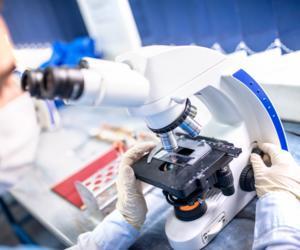Cancer in the Lymph Nodes

What is Lymphoma?
Lymphoma is a type of cancer which affects the lymphatic system. The lymphatic system includes the spleen, bone marrow, thymus gland and lymph nodes (or lymph glands). When a person has lymphoma, all these body parts, among others, are affected.
The lymphatic system is the body’s disease fighting network. It also moves lymph fluid in the body. Lymph fluid contains white blood cells which fight against infection, while the lymph nodes filter foreign microorganisms to prevent the spread of infection.
There are several types of lymphoma but the main ones are Hodgkin's lymphoma and non-Hodgkin lymphoma.
The type of treatment administered to a person with lymphoma depends on the type of lymphoma, how severe the lymphoma is and the preference of the individual. Common treatments for lymphoma include chemotherapy, radiation therapy, stem cell transplant and biological therapy medications.
Types of Lymphoma
The primary types of lymphoma are Hodgkin’s lymphoma and non-Hodgkin lymphoma. Non-Hodgkin lymphoma is three times as common as Hodgkin's lymphoma. People with Hodgkin's lymphoma have Reed-Sternberg cells, which are large cancerous cells. People with non-Hodgkin lymphoma do not have Reed-Sternberg cells.
Many types of lymphomas fall under both categories. The types of non-Hodgkin lymphoma are named according to which cells are affected and whether the cells are slow-growing or fast-growing.
Non-Hodgkin lymphoma affects the T-cells or B-cells of the body’s immune system. Most types of non-Hodgkin lymphoma affect the B-cells. These include:
- B-cell lymphoma
- Follicular lymphoma
- Burkitt lymphoma
- Mantle cell lymphoma
- Small lymphocytic lymphoma
- Primary mediastinal B cell lymphoma
- Waldenstrom macroglobulinemia
On the other hand, Hodgkin lymphoma usually starts in B-cells or Reed-Sternberg cells. The types of Hodgkin lymphoma are:
- Lymphocyte rich Hodgkin disease
- Lymphocyte depleted Hodgkin disease
- Nodular sclerosis Hodgkin lymphoma
- Nodular lymphocyte predominant Hodgkin disease
- Mixed cellularity Hodgkin lymphoma
Symptoms of Lymphoma
The first symptom noticed by most patients with lymphoma is swollen lymph nodes, which feel like small, soft nodules underneath the skin. Other symptoms include:
- Coughing
- Enlarged spleen
- Night sweats
- Rash
- Skin itching
- Unexplained weight loss
- Aching bones
- Fatigue
- Fever
- Shortness of breath
- Stomach pains
Symptoms of lymphoma may not appear during the early stages of the disease. An enlarged lymph node may only be discovered through physical examination of a doctor.
The Diagnosis
When lymphoma is suspected, a biopsy may be performed. During a biopsy, sample cells are removed from a swollen lymph node. A hematopathologist examines the cells to determine whether there are lymphoma cells present and what category they fall under.
If lymphoma cells are present, additional tests are necessary to determine the spread of the cancer. These may include blood tests, chest X-ray, and imaging scans such as magnetic resonance imaging (MRI) and computed tomography (CT) scans.
Treatment for Lymphoma
Planning appropriate treatment for lymphoma requires a team of specialists. It should include hematologists, oncologists and pathologists.
Treatment for lymphoma depends on the stage of cancer and how fast is it growing.
For Hodgkin lymphoma, treatment may include chemotherapy and radiation therapy. These can help destroy and shrink the cancer cells. For non-Hodgkin lymphoma, chemotherapy and radiotherapy may also be used. In addition, biological therapies may be added.














